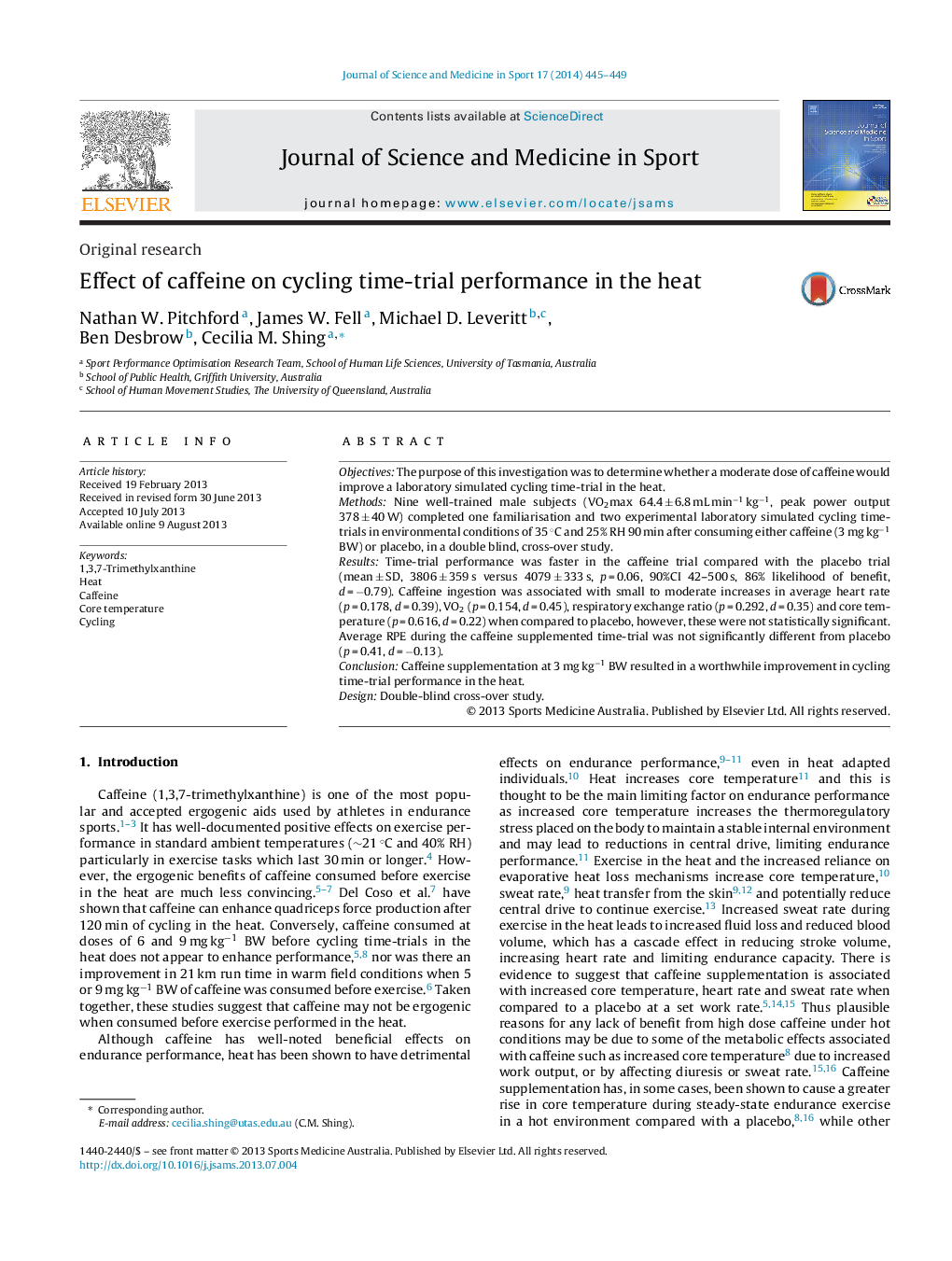| Article ID | Journal | Published Year | Pages | File Type |
|---|---|---|---|---|
| 2702844 | Journal of Science and Medicine in Sport | 2014 | 5 Pages |
ObjectivesThe purpose of this investigation was to determine whether a moderate dose of caffeine would improve a laboratory simulated cycling time-trial in the heat.MethodsNine well-trained male subjects (VO2max 64.4 ± 6.8 mL min−1 kg−1, peak power output 378 ± 40 W) completed one familiarisation and two experimental laboratory simulated cycling time-trials in environmental conditions of 35 °C and 25% RH 90 min after consuming either caffeine (3 mg kg−1 BW) or placebo, in a double blind, cross-over study.ResultsTime-trial performance was faster in the caffeine trial compared with the placebo trial (mean ± SD, 3806 ± 359 s versus 4079 ± 333 s, p = 0.06, 90%CI 42–500 s, 86% likelihood of benefit, d = −0.79). Caffeine ingestion was associated with small to moderate increases in average heart rate (p = 0.178, d = 0.39), VO2 (p = 0.154, d = 0.45), respiratory exchange ratio (p = 0.292, d = 0.35) and core temperature (p = 0.616, d = 0.22) when compared to placebo, however, these were not statistically significant. Average RPE during the caffeine supplemented time-trial was not significantly different from placebo (p = 0.41, d = −0.13).ConclusionCaffeine supplementation at 3 mg kg−1 BW resulted in a worthwhile improvement in cycling time-trial performance in the heat.DesignDouble-blind cross-over study.
